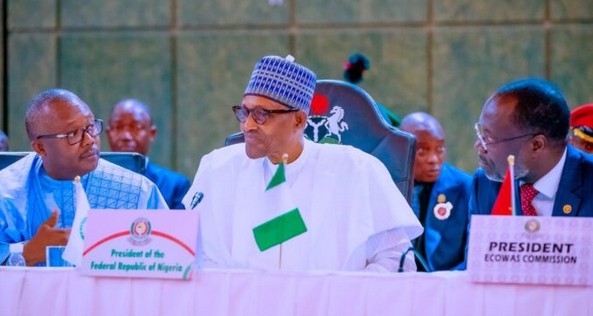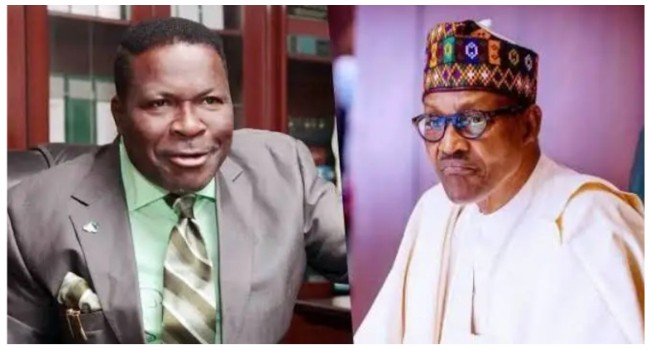Business
President Buhari’s N1 trillion SIP largesse fails to curb poverty

Adebayo Obajemu
The worsening multidimensional poverty rate and poor living standards of Nigerians have fuelled calls by Nigerians for a deeper scrutiny of President Buhari administration’s social investment programmes, which had allegedly consumed over a trillion naira.
Immediately he came to office, Buhari announced that the administration would spend N500 billion annually on social investment programmes, such direct cash transfers, TraderMoni, school feeding etc to alleviate poverty and create jobs. But after seven year in office, poverty and unemployment, rather than abate have explode with 133 million Nigerians or 63 percent of the population in multidimensional poverty.
Last the federal government in different statement blamed state government for rising level of poverty in the country. Minister of state for finance, budget and planning, Mr. Agba, accused the governors of abandoning real development that affect people’s life, particularly in rural, and pursuing white elephant projects, such as airports and bridges in cities for political purposes; while President alleged that governors were stealing local government funds and denying them of performing their constitutional responsibility of lifting up the rural communities.
The calls for probe and interrogation of the administration of the Social Investment Programmes of the federal government ricocheted with reverberating effect when two weeks ago, the National Bureau of Statistics (NBS) disclosed that 133 million Nigerians, representing 63 per cent of the population are currently living in multi-dimensional poverty.
In March , 2016, the Senior Special Assistant to the Vice President on Media and Publicity, Laolu Akande, said that at no time in the nation’s history had the federal government made a specific vote of such volume for social welfare.
“Even economic historians now say that not only is the half a trillion naira vote unprecedented, but it is also the greatest service ever done to the Nigerian state and people by any federal government administration”, he had said. Today Nigerians are asking, what went wrong?
He then disclosed that the six social safety plans of the administration would reduce high levels of poverty and increase Nigeria’s Human Development Index on the global rankings.
“The President’s vision is to increase investments in human capital to guarantee security for all, employment and improved well-being of the people”, he said. Akande stated that past government’s efforts to address poverty failed due to lack of political will.
According to him, the Conditional Cash Transfer “where one million extremely poor Nigeria will receive N5,000 monthly in 2016, the money will be paid directly to the beneficiaries through a payment system that is being worked out”.
“In the case of the CCT, those one million poor Nigerians would be paid directly, while in the case of the Homegrown School Feeding, the suppliers of the meals to the primary school pupils would also be paid directly by the federal government. There would be no middle agents involved official or private”.
“Regarding the Homegrown School Feeding programme, the federal government will start a pilot scheme in selected states once the budget is passed. An estimate of over N96 bn being proposed to be spent on the Homegrown School Feeding this year. The one-meal-a-day programme is also being supported by the Imperial College in the UK through one of its agencies Partnership for Child Development, PCD”.
But a scandal broke in 2020 when the government claimed to be feeding pupils, at a time there was national lockdown. Indeed, most Nigerians would easily swear to never knowing or seeing any such school, especially in the south. When the Senate was coerced to begin probe of the spending, the office of Accountant General of the Federation, where the documents were deposited was burnt.
“The Buhari Presidency has four other social investment plans, including the 500,000 direct jobs where unemployed graduates will be trained and hired to become volunteer teachers in their communities while looking for jobs in their chosen profession.
“There is also a Youth Employment plan that would take 370,000 non-graduates youths through skills acquisition and vocational training programmes. Like the teaching jobs, the selection of beneficiaries for this scheme would be done on states and FCT basis, opened to all Nigerians of different shades.
“For small scale traders, artisans and market women, there is the Micro Credit scheme where one million Nigerians would get a one-time soft loan of N60,000 each through the Bank of Industry. And finally there is the Free Education plan for students of Science, Technology, Engineering & Mathematics, STEM where government will pay tuition for 100,000 students”, he said.
It is in view of the staggering sums expended on the programmes that Nigerians are worried that the social investments were not properly thought out, and in terms of execution, might have been fraught with the unusual corruption, where monies budgeted for same were diverted.
Giving this popular perception much fillip was the NBS’s bleak poverty figure.
Professor Adeyemi Asaju, an economic historian asserted that “the problem with programmes like social investments is clearly that of corruption, lack of monitoring and oversights. Government just throws money at something without monitoring the spending and execution of projects for which the money is meant for.
Professor Adeagbo Moritiwon, a political scientist said “the social investment programmes had in built failure mechanism, because like everything that characterises this government, there’s no monitoring. This is an aloof government – aloof from the people and even its own programmes. It outsources everything to cronies, just like jobs for the boys. Money meant for projects are not monitored.”
Many Nigerians regards the social investment programmes as a flop. The pervasive poverty among Nigerians shows that the programme has not achieved its objective.
An economic rights organization, the Socio-Economic Rights and Accountability Project (SERAP) angered by the distressing rate of poverty among the populace has called on President Muhammadu Buhari to “promptly set up a presidential panel of enquiry to thoroughly, impartially, effectively and transparently probe spending on all social safety-nets and poverty alleviation programmes and projects executed between 2015 and 2022″.
SERAP in a letter dated November 19, 2022 and signed by its Deputy Director, Kolawole Oluwadare, made a passionate appeal to President Buhari to set up high power investigations into how poverty index keeps rising despite the huge investments at tackling it, saying the findings of such investigations should be made public.
“The report that 133 million Nigerians are poor suggests corruption and mismanagement in the spending of trillions of naira on social safety-nets and poverty alleviation programmes, including the reported disbursement of over $700 million from the repatriated Abacha looted funds to these programmes.
“Your government has legal obligations to effectively and progressively address and combat extreme poverty as a matter of human rights.
The organization in the letter copied to the United Nations (UN) Special Rapporteur on extreme poverty and human rights, Mr. Olivier De Schutter, further stated, “These grim revelations by the NBS show the failure to fulfill your oft-repeated promise to lift 100 million Nigerians out of poverty, and that no one will be left behind.
“We would be grateful if the recommended measures are taken within seven days of the receipt and/or publication of this letter. If we have not heard from you by then, SERAP shall take all appropriate legal actions to compel your government to comply with our request in the public interest.”








